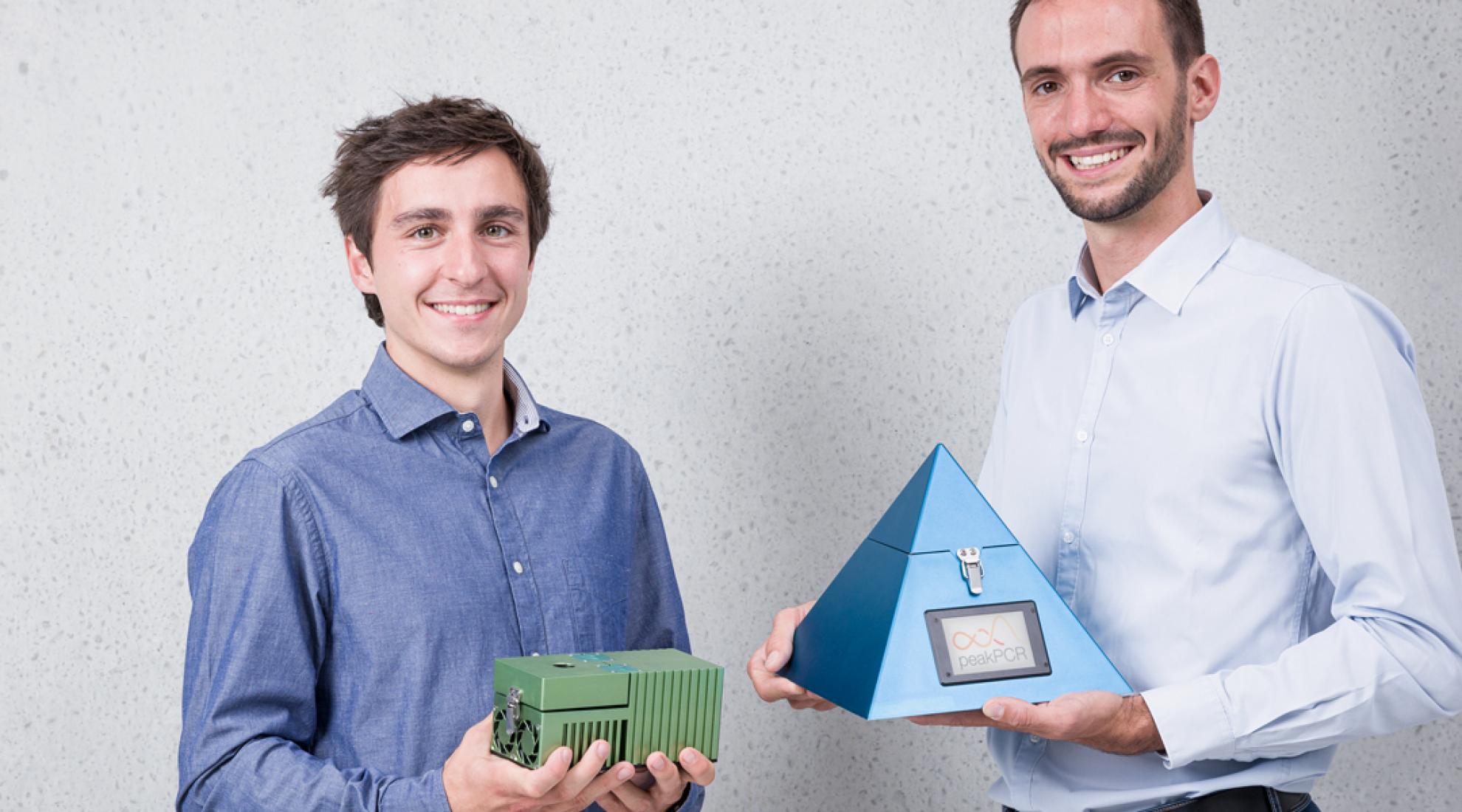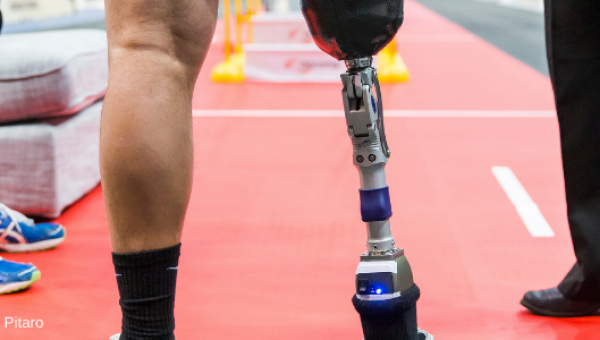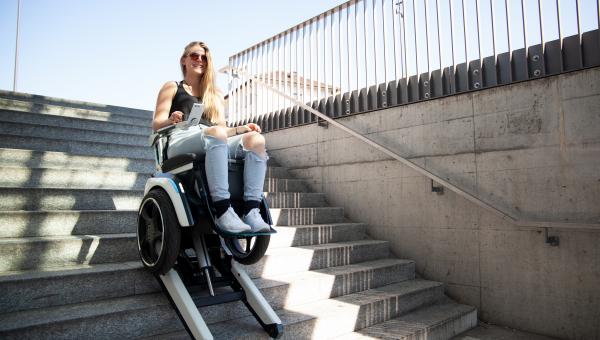New PCR test device from ETH Zurich spin-off in the starting blocks

Until now, PCR tests, which are so important in a pandemic, have required a laboratory and trained staff. Swiss researchers from ETH Zurich are about to change that.
Before COVID-19, only medical experts knew the word PCR. Yet the polymerase chain reaction (PCR) is an enormously important invention, for which biochemist Kary Mullis was even awarded the Nobel Prize in 1993. The diagnostic method, which can be used to amplify genetic material, allows very precise detection of DNA material in a sample.
The method has a key role to play, especially during a pandemic. Despite numerous technical developments to automate PCR, it still requires expensive equipment and trained laboratory practitioners.
Working on new PCR test method since 2016
Two researchers from ETH Zurich have been working since 2016, so long before COVID-19, on a simpler way to perform PCR tests which culminated in a new spin-off called diaxxo in 2020.
Their new technology is already being commercialised and, if everything goes as promised, should deliver PCR results within 25 minutes – even by employees without specialist knowledge. The system, called peakPCR, is available in a desktop version with power connection and display, and even in a battery-powered portable version; for the latter, a smartphone is used for control. COVID-19 test kits are also available in two variants, one of which is tailored to US specifications. In addition, a sample holder for 20 reactions at a time is offered, into which you can fill your own reagents in order to perform other tests.
PCR test results in under 30 minutes
The new development peakPCR runs with dedicated software. The cartridges resemble coffee pods and it’s the most significant innovation of the new device. The samples don’t have to be mixed with reagents, but land directly in the 20 wells of the cartridge. Diaxxo also made improvements to the ‘thermal cycler’. Since the aluminium wells of the cartridge are not made of plastic, they can be heated and cooled more quickly. The temperature control, which is so important in PCR, should thus run much faster: only 20 seconds per cycle instead of two minutes. The known 45 PCR cycles are thus shrunk to 20 minutes, coming close to antigen rapid tests, which usually take 15 minutes.

The aluminium test cartridge.
Diaxxo has collaborated on a handful of well-known research partnerships to test the technology in the field. The biggest so far is with the Swiss Tropical and Public Health Institute and involves a field study in Zanzibar, where diaxxo devices are currently being used to test schoolchildren across the country for schistosomiasis, a disease caused by parasitic worms.
Waiting for approval
Inquiries are already coming in from non-medical areas: cruise ship companies, for example, want to access PCR tests on board in the future. Particularly interesting is the fact that prices for a single PCR test are likely to drop as a result of the new technology. Only one important milestone is missing: approval as a medical device, which is currently under review by the relevant Swiss authorities.




